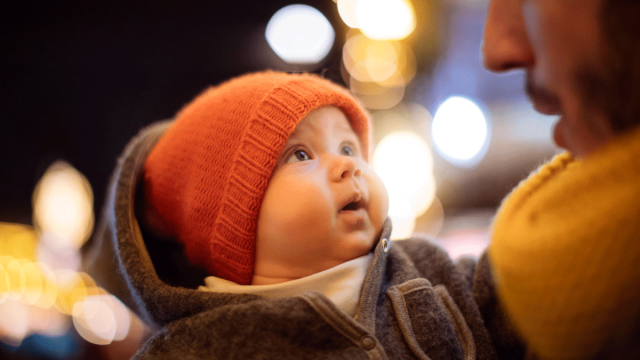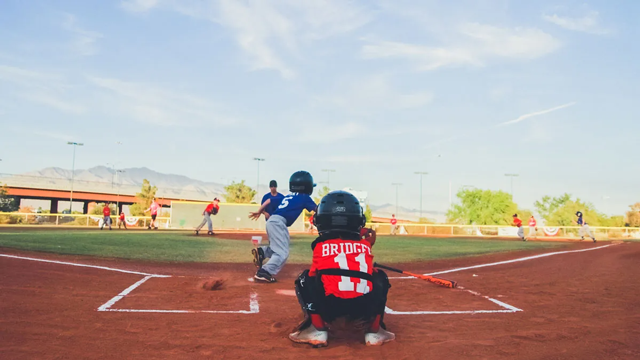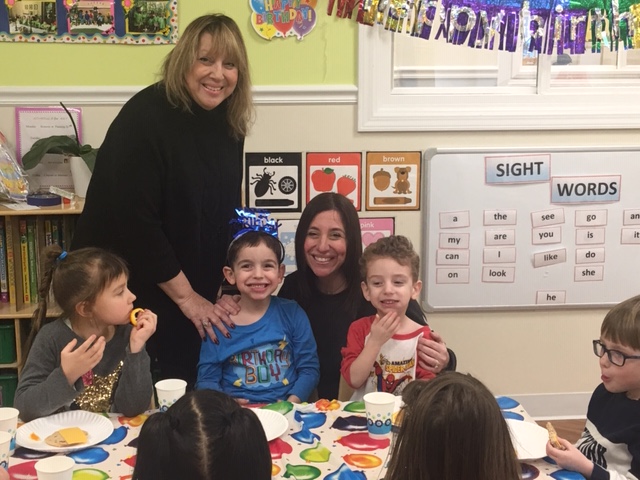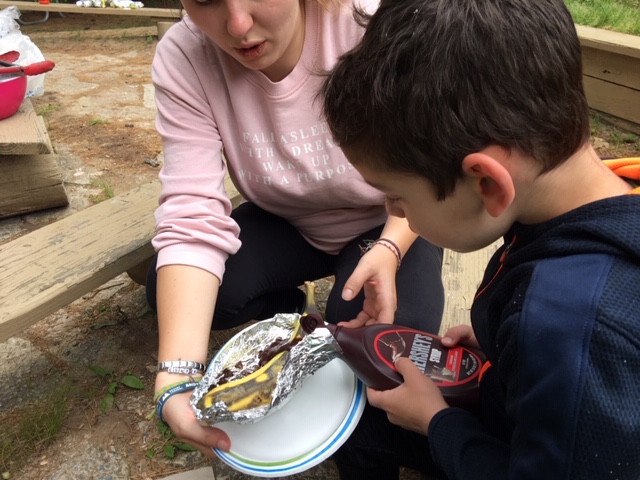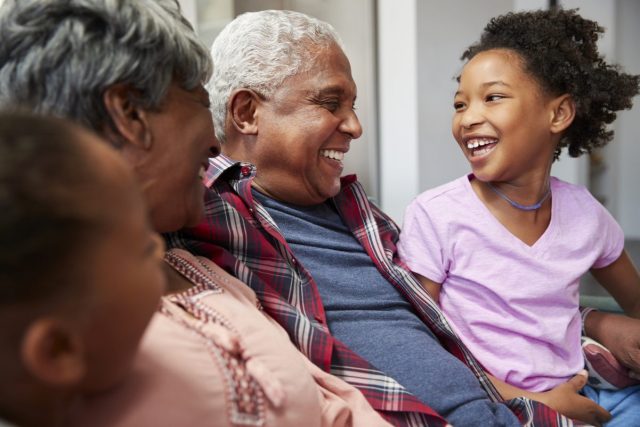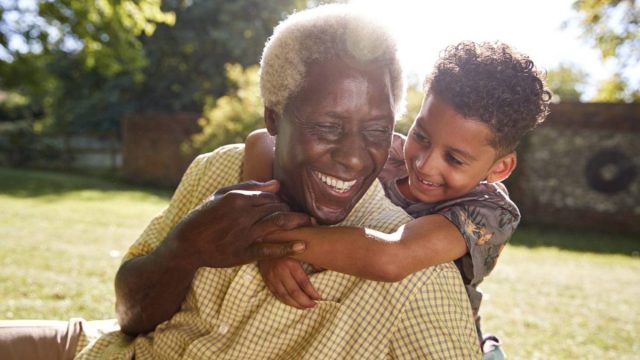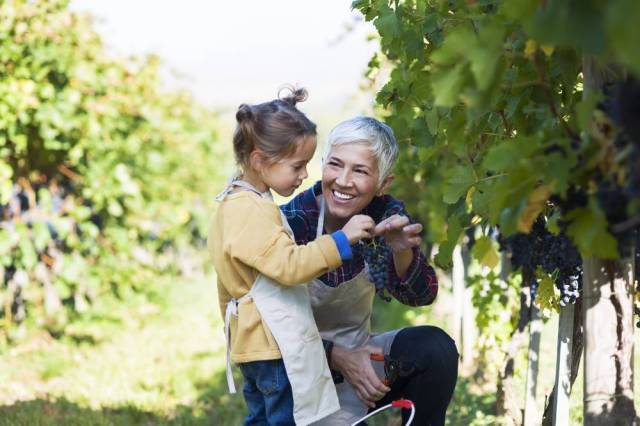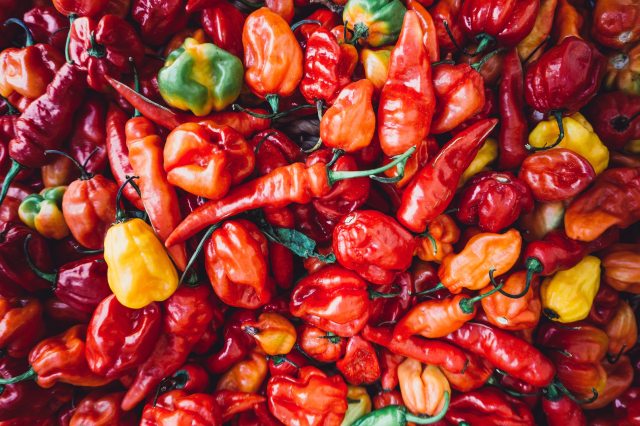From being an early riser to having several birthstones, people with a December birthday are a special bunch
Being a December baby can sometimes feel like a downer because birthdays can get forgotten in the holiday rush. But the truth is that people with a December birthday are impossible to overlook. While being born in November isn’t very common, December babies (especially those born on Dec. 25) are some of the rarest of them all. Here are some attributes you might not know about your December baby.
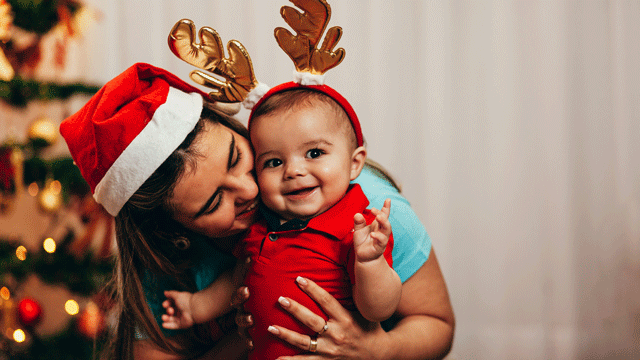
Late December Birthdays Are Rare
It might be a celebratory distraction to be born on a big holiday, like Christmas, but the truth is it’s very rare to be born on Dec. 25, which makes those birthdays pretty special. In fact, Christmas Day is the least likely day of the year to be born, ranking at 366th with just over 6,500 births on average. Dec. 24 is also a rare one, ranking at 364th, and Dec. 26 comes in at 361st.
Some December Baby Names Are Related to the Holidays (but Not All)
While some December baby names are related to the holidays (think Joesph, Eve, Noelle, Nicolas), according to Nameberry, other names to give babies born in the last month of the year range from those inspired by light (Lucien) and December's flower (Narcissa, Holly), to the Winter Solstice (Talvi), and good fortune (Felix).
They're Less Moody As Adults
While we can’t make any guarantees when it comes to those terrible twos (and threes), according to research, people with a December birthday are less irritable as adults than those born in other months. A Hungarian study found that those born in the winter months, like December, were least likely to suffer from mood swings. So while the weather might be chilly outside when your December baby is born, expect to get a lot of warmth from these little charmers as they get older.

They’re Bold Explorers
With all this talk of birthdays, you might ask, what is the zodiac sign for people born in December? Babies born before Dec. 21 are ruled by Sagittarius, the archer, meaning that you can expect wisdom, determination, and a bold attitude. These spitfires are also known being adventurous travelers, so get your world map ready. If their birthday comes after Dec. 21, that makes them a Capricorn. Represented by the goat, this zodiac sign for December implies that your baby will be ambitious and highly disciplined while also good-natured. So, in other words, they have a great work ethic.
They're Rich in Birthstones
What is December's birthstone? Lucky for December babies, they have four beautiful blue-hued gems to choose from if you include the blue topaz. The topaz is known for its sparkle, variety of colors, and affordability (a win-win for birthday gifts), although some history and jewelry experts argue that blue topaz does not represent December. Even if that's the case, you're still left with three gorgeous gems: the calming and ever-popular turquoise, the unique purple-blue tanzanite, and the blue-green zircon (said to be one of the oldest materials on earth).

They’re the Head of the Class
Depending on what your school entry cut-offs are, your December baby is either one of the youngest in the class or the oldest. Either way, they are on track to be one of the brightest. While some studies show that kids who are the oldest in their class are more successful in academics, other research has shown that being the youngest also has an advantage by the time kids prepare to graduate high school, with the youngest outperforming their older classmates by the time they are applying for college. Either way, it's a win.
They’re Early Risers
A study of human circadian rhythms found that those born in winter months, including December, were more likely to be morning people, which means at least you’ll face a smiling tot when you’re up at the crack of dawn. Better still, other similar studies found that those born during the same season were more likely to go to bed earlier, which means more me-time for mom and a more efficient schedule going forward.

Celebrities with a December Birthday
Some famous December babies include Walt Disney, Beethoven, and Jane Austen. Do you like movies and television? There's a VIP list filled with celebrities born in December such as actresses Lucy Liu, Amanda Seyfried, and Julianne Moore, as well as film director Judd Apatow. Mckayla Maroney and Gabby Douglas, two Team USA Gymnastics gold medalists, were born in December. Dec. 30 alone marks the birthdate of several iconic baseball players in history including Sandy Koufax, Frank Torre, and Jose Morales.
—Additional reporting by Dhyana Levy
